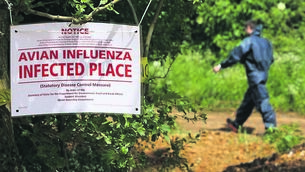Busking by-laws: What do the artists think?

There is broad support for the general thrust of the new by-laws in Cork city, among buskers and musicians, that Oliver Moran has spoken to.
CORK has its own vibrant street performance culture, part of a bedrock to the city and its cultural life.
We need to listen to our city’s artists now, especially our young artists, as we consult on new street performance by-laws – so that we don’t lose the best of who we are by crudely adopting regulations more suitable to places like Temple Bar and Killarney.
The city’s proposed new street performance by-laws are being driven by the Waste Enforcement section of Cork City Council, and consequently through the environment policy committee, as opposed to the community or arts-related directorates. This makes sense from a bureaucratic point-of-view. These are the officials who have responsibility for monitoring noise pollution, but it doesn’t make much sense from the point of view of supporting the creative arts or the city’s culture.
Taking this approach risks street performance being regulated solely through the lens of a social negative, instead of as a positive for the city and its creative life.
One upshot of this already is that the initial stakeholder consultation included businesses and the gardaí, but remarkably did not speak to buskers, artists or musicians. Rather, input from them will be taken alongside everyone else in the public consultation – and not as stakeholders in their own right.
In fact, my sense is that the very idea of even being able to find buskers to speak to was seen as something like catching shadows in the night, and that buskers were consequently seen as the musical equivalent of fly-tippers.
What may be surprising then, is the broad support for the general thrust of the by-laws among buskers and musicians I’ve spoken to. Anyone who has spent time in the city near Brown Thomas will know there is one ‘act’ no-one will shed a tear at losing.
Instead of two groups in opposition – city residents and traders on one side, buskers on another – as stakeholders, they share more in common than might initially be thought. Many local businesses actively affirm, encourage and support certain buskers, including some who would be excluded from performing by the proposed by-laws. One regular busker told me he is actively encouraged to play by café owners as their customers enjoy an experience unique to the city.
The proposals also have the potential to put order on some of the bugbears faced by buskers in common with residents and businesses, including the quality, loudness and variety of performances.
By putting restrictions on how long a busker can stay at one location and the need for a minimum repertoire, the regulations will address one of the most common complaints from businesses and residents.
At the same time, these requirements set a minimum expectation that buskers feel is proper from performing artists, and could put a stop to individual buskers claiming prime locations for their own. Volume limits are a benefit to both groups too, with genuine buskers also not wanting to be drowned out by blaring noise from other performers.
It’s when we move into the detail that issues emerge from not engaging with artists. Something obvious to musicians, but perhaps not to others, is that the proposed ban on backing tracks presents a significant problem for some. This may unintentionally create a field of middle-aged men with guitars as other styles (e.g. operatic singers, dance, hip-hop, melody instrumental soloists) require a backing track for genuine artistic purposes.
In a similar vein, I was surprised at how the artists I spoke to didn’t separate out different creative arts: they put a visual artist painting a canvas in the same category as a magician. They pointed out different types of artists have different needs and restrictions. A 30-minute repertoire was something they thought was a minimum for musicians, but for an acrobat a that could be a superhuman ask.
While the proposed by-laws made no difference between designated performance spaces, artists pointed out different spaces are more suitable for different acts. For example, a classical quartet, a dancer, a poet and a fire-eater need different spaces.
They also pointed out the perception of loudness is dependent on the environment. Consequently, the proposed fixed 75dB limit may sound very loud in one location while being very quiet in another. A large open area like Rory Gallagher Place obviously requires a higher dB than would be necessary to achieve the same effect on Princes Street.
One thing that seems unusual is that the only legitimate method to pay a busker under the proposed by-laws is by placing money into a ‘receptacle’ like a hat or guitar case. As we move to a cashless society, this may already be out-dated before the by-laws are even enacted. Already, there is a growth of online services to allow for cashless payments to buskers. Also, a painter may ‘perform’ by painting in public and having original artworks for sale, or a rock band might have T-shirts for sale.
For me, a significant question should be how these regulations will affect supporting young people in the cultural life of the city.
Cork’s streets are fortunate to be gifted with young talent from a school of music, performing arts academies, and secondary schools.
The proposed by-laws will include a requirement to register as a busker that comes with a registration fee. This can quickly escalate and would have a significant bias against certain acts. For a lone-busker, this fee is €30 for the year, but for a secondary school four-piece rock group with amplification, it would be €240 – €30 per member, plus another €30 each for an amplification licence. That may squeeze out younger acts for whom busking isn’t a profession but a gateway into developing as an artist.
One suggestion is for a student or under-25s license. I think this would be a good idea. It may also be an idea to dispense with a need for all members of a group to hold a licence.
Supporting that age group is, I believe, very important to the cultural life of the city. In fact, I would argue the best buskers we have are in that category, who later move into the more formal entertainment economy.
Perhaps, if the question of by-laws had first been approached from an artist’s point of view, we might have begun by asking what artists do we want to support?
Unfortunately, the way the proposals have been advanced mean we have to come at that question now, with draft bye-laws already written that approach the issue from a different perspective.







 App?
App?




